If you are afraid to socialise, we offer a solution that will help you to find like–minded people
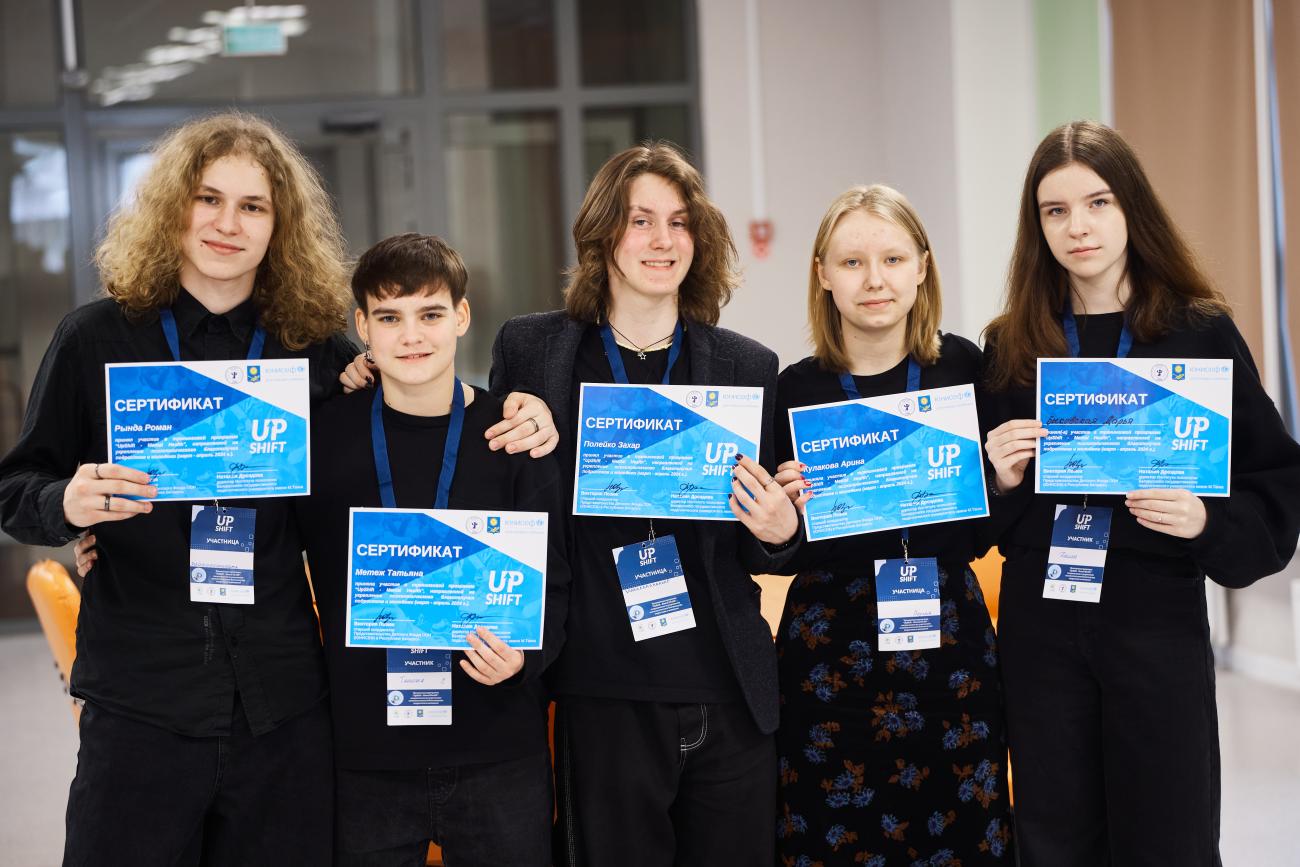
Teenagers from the capital's gymnasium have come up with a special mobile application for their peers.
Recently, Roma was embarrassed to communicate live: it was comfortable only in the online space. Dasha was stressed because of her new environment: would she be able to find a common language with classmates and teachers after transferring to another school? Zakhar was worried about failed romantic relationships. Young people did not go into shell, but began to look for a way to cope with their worries. At first, they found like-minded people and support in Minsk Gymnasium No. 56 at the elective class “My psychological well-being and helping my peers in a crisis situation”. And then they offered their own solution to their peers on how to cope with psychological problems.
The students took part in the Republican training on UPSHIFT social design and developed a project on psychological help for their peers. The training was implemented by the Institute of Psychology of the Belarusian State Pedagogical University in cooperation with the United Nations Children's Fund (UNICEF) in Belarus. The teenagers have developed the SUNLITE mobile application for their peers, which develops communication skills, helps to find like-minded people and contains useful information on how to take care of one's mental health, cope with anxiety and stress. In addition, the team is confident that the active use of their product will increase the level of emotional comfort in the gymnasium.
At its core, the SUNLITE app is similar to Tinder. The difference is that in SUNLITE you need to provide more information about yourself so that the search for new acquaintances is more accurate, while communication itself takes place in messengers. The design of the application is almost complete, now its "logic" is being finalised, the search and verification of the content is underway – information of articles and cases. It is planned to launch SUNLITE for testing in mid–May, and in June it will be finalised based on the results. As soon as it is ready, a “mass” launch for gymnasium students will take place.
The teenagers determined the topic of the project together and quickly, and the form of its implementation became an ambitious goal and a challenge. And although the result was a joint brainchild, each participant had their own role here: Dasha searched for and processed information, Arina drew illustrations, Tanya and Zakhar thought through the structure, compiled questionnaires, prepared a presentation, Roma wrote the code. But such features of the application as “Trouble Killer" are a team effort. They presented and defended the project together, so the victory is shared.
"This team immediately attracted our attention," the organisers of the UPSHIFT training say, "They are open, definitely on the same wavelength, united, prepared and deeply immersed in the topic. That is why, probably, their victory is in many ways natural."
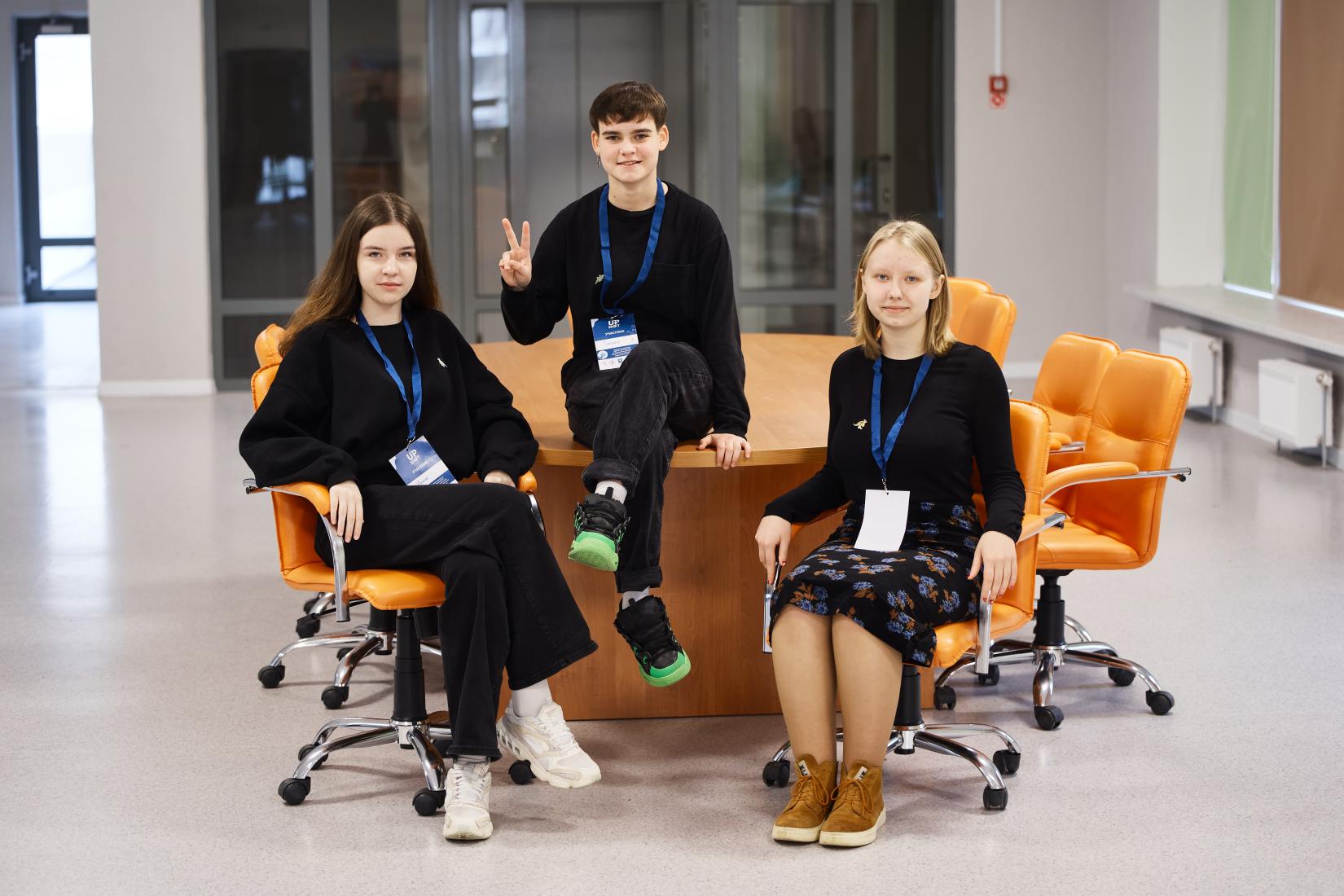
We got to know the team better. Dasha, Arina, Tanya, Roma and Zakhar have been attending the school elective class “My psychological well-being and helping my peers in a crisis situation” together for a long time and are really like-minded people; they are friends.
Roma, a student of the 11th grade, plans to become a programmer and is preparing to enter the Belarusian State University of Informatics and Radioelectonics; he will be responsible for technical implementation and maintenance of SUNLITE. The topic of the project is clear and close to him, as he understands well from personal experience its relevance to life situations. “At some point, I began to feel uncomfortable in live communication. For example, it was not easy for me to even ask a passer-by where the nearest transport stop was, not to mention building relationships with my peers,” the teenager says. He considers one of the reasons for this situation to be the active digitalisation of society, as he, like most of his peers, spends a lot of time in virtual space.
“And this environment is mostly impersonal, you don't see the real reactions of a person, you don't know the broader context in which communication takes place, there are more chances to get some flack in a concentrated form," Roma explains, ”Hence the shyness and fear of communicating in person, getting to know someone, and sharing your experiences and ideas out loud." And since electronic devices are a more comfortable environment for teenagers, we needed a project that would help them to use devices for good purposes, would give them useful information on the topic in an accessible form, would help them to start socialising, finding friends of interest and, perhaps, would motivate them to go offline. Roma sincerely believes that the ability to communicate allows people to avoid many problems and cope with anxiety and stress much easier.
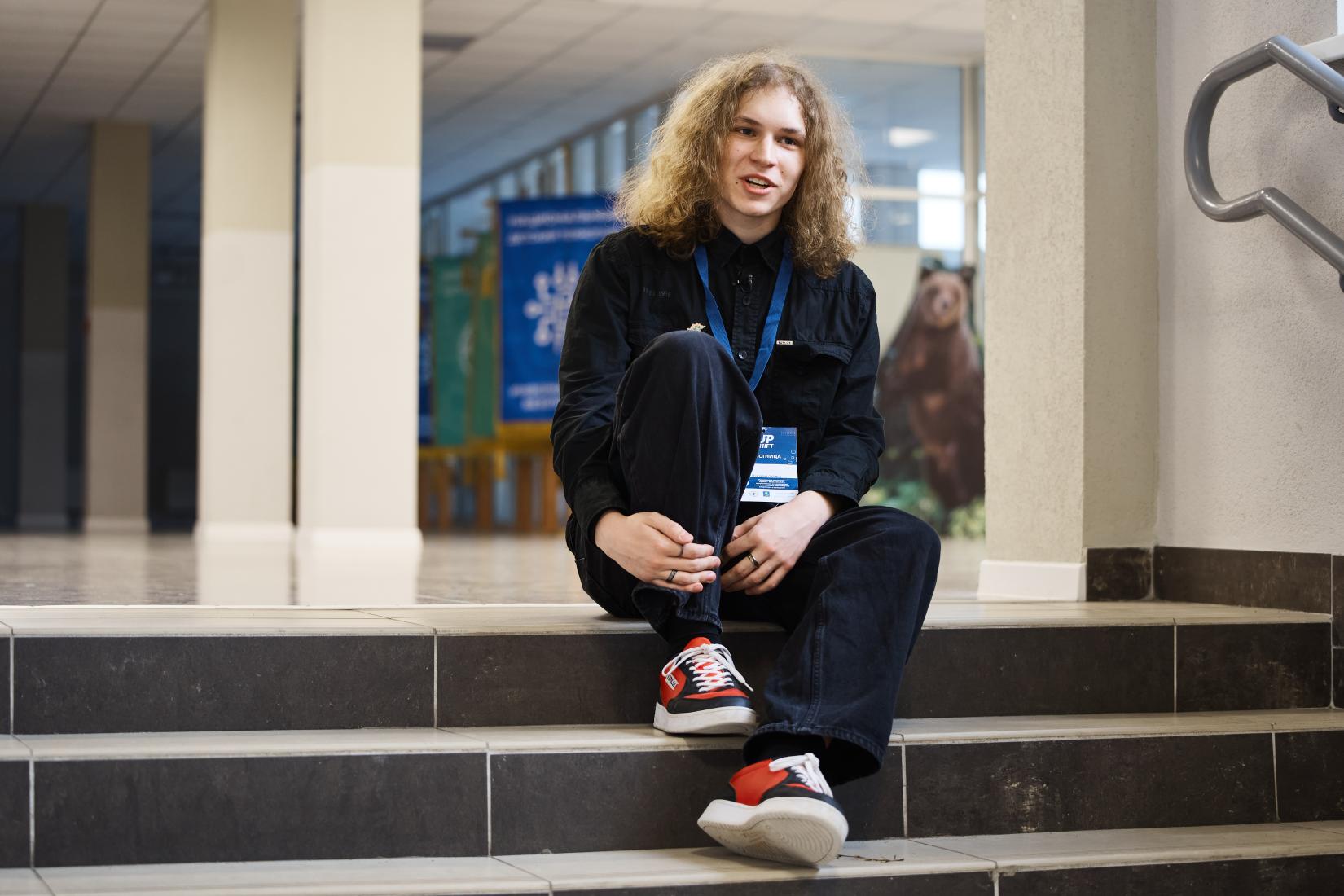
Zakhar is Roma's classmate. The future manager agrees with a friend. Moreover, he is sure that both a parent and a psychologist can help a teenager resolve his doubts, suggest the right path in a given situation; it depends on the essence of the issue and trust. “It is a mistake to think that you should approach a psychologist only with problems. You can just discuss a topic of concern. This will allow you to hear a second opinion, to see a solution that did not come to mind before. And all that has been said will stay within the office.” In addition, with understanding one's own actions comes understanding of other people's behavior and circumstances. When asked "What do his peers care about?",
Zakhar jokingly replies, “There are three Horsemen of the teenage “Apocalypse”: relationships with parents, love and inability to socialise. Oh, yes, and study, probably. There are four of them then” (smiles). He approached a school psychologist himself with his worries about a failed romantic relationship. And this conversation with a specialist was the beginning of their confidential communication and the young man's more conscious interest in the subject of psychology. He began to attend the elective class and actively participate in team project work. And, of course, he made new friends here, including Arina, Dasha and Tanya schoolgirls of the 10th grade.
Experts of the Republican Center for Psychological Assistance of the Belarusian State Pedagogical University together with UNICEF in Belarus launched the talk2ok.byonline platform, with the help of which teenagers and young people can receive qualified psychological assistance for free and confidentially in the form of online consultations in the format of audio and video chats, which is comfortable for modern teenagers. Peer consultants work on the platform as well.
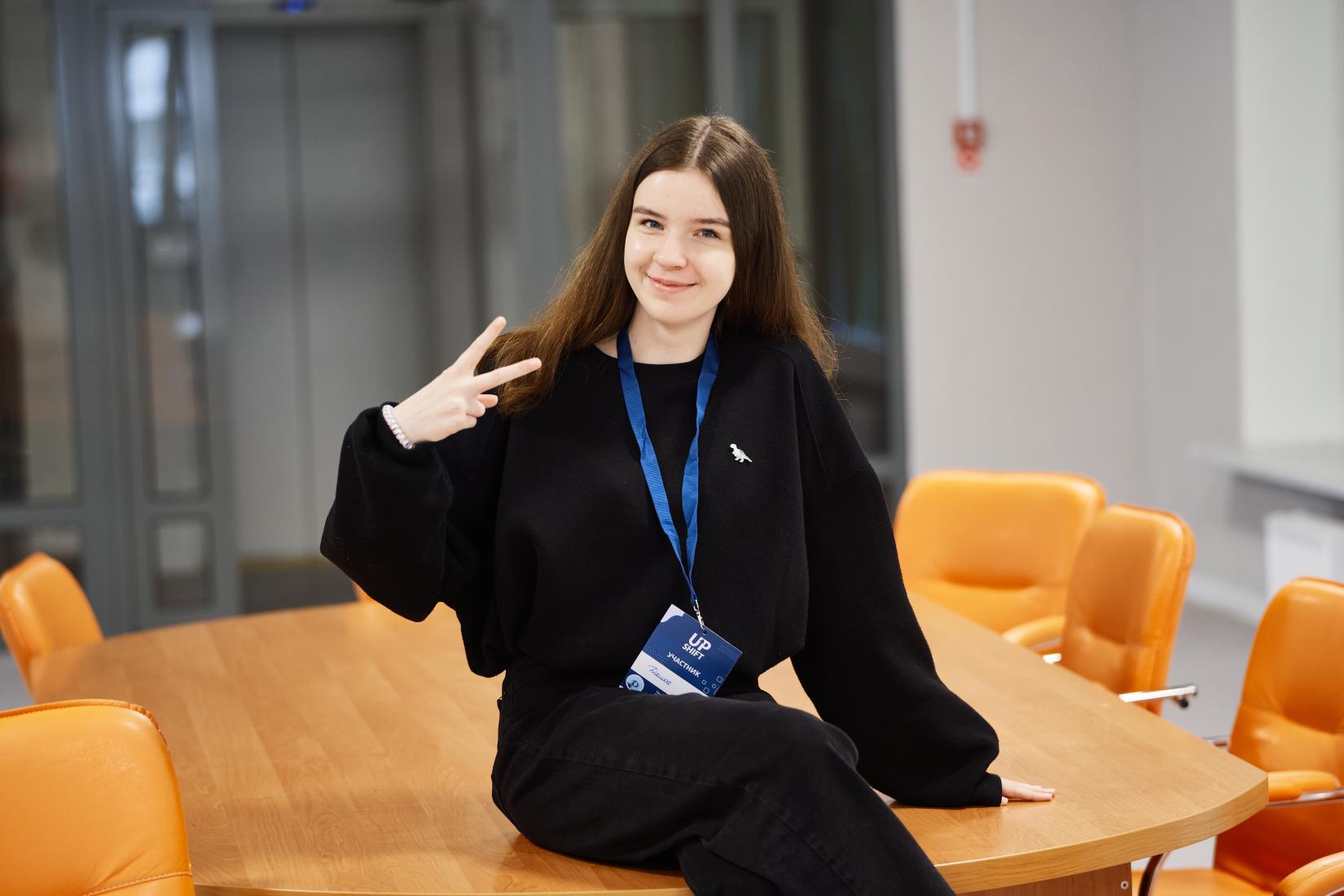
Dasha is an adept of exact sciences and a systematic approach, so collecting the necessary and useful information and case studies for the project became her task. The relevance of SUNLITE was not in doubt, because this academic year the girl was experiencing serious stress when she transferred from an ordinary school to a gymnasium. Everything is new and unfamiliar: teachers, classmates, the level of requirements, and also her own high standards of academic performance. Of course, her parents supported her at home, but at school, among her peers, anxiety and tension were increasing. As a result, grades deteriorated even in her favorite subjects, and the mood was depressed. Having realised that she could not cope on her own, and the support of her parents was not enough, Dasha approached a school psychologist, trusted and believed them. The guys from the elective class and useful information that she received at the training helped a lot. Everything gradually got better; she made friends, improved her grades, a new school day ceased to be a struggle. “It is important not to romanticise or ignore your anxiety or negative state, not to be afraid to seek help, including qualified one. This is a manifestation of caring for your mental health,” Dasha claims.
Arina recently turned 16. The girl is passionate about drawing and considers this activity one of the best ways to express her feelings, worries, and dreams. This is how she worked out her stress, which was due to the fact that her classmates did not accept her immediately; it was uncomfortable and lonely at school until she came to the elective class on psychological well-being. The request was specific – to stop blaming herself for not fitting into the mainstream, and learn to praise herself for big and small victories. “A lonely, unhappy person with complexes does not live life to the fullest, they do not have energy, they project their condition onto others, therefore, relationships and health, including mental health, are always at risk,” Arina believes.
”And since many adult problems are untreated childhood traumas and resentments, it is necessary to deal with them right in the moment." In her opinion, the source of resentment, anxiety, and fears may be misunderstanding with parents or peers, the attitude of a teacher, uncertainty about the future due to the difficulty of choosing a profession, inability to communicate, share or ask for help in time. “So our team's project should help teenagers overcome barriers related to communication, as well as suggest how to properly assess their condition, remind them of the importance of psychological well–being; and the tool for this is always at hand, in a mobile phone application,” Arina sums up a kind of conclusion.
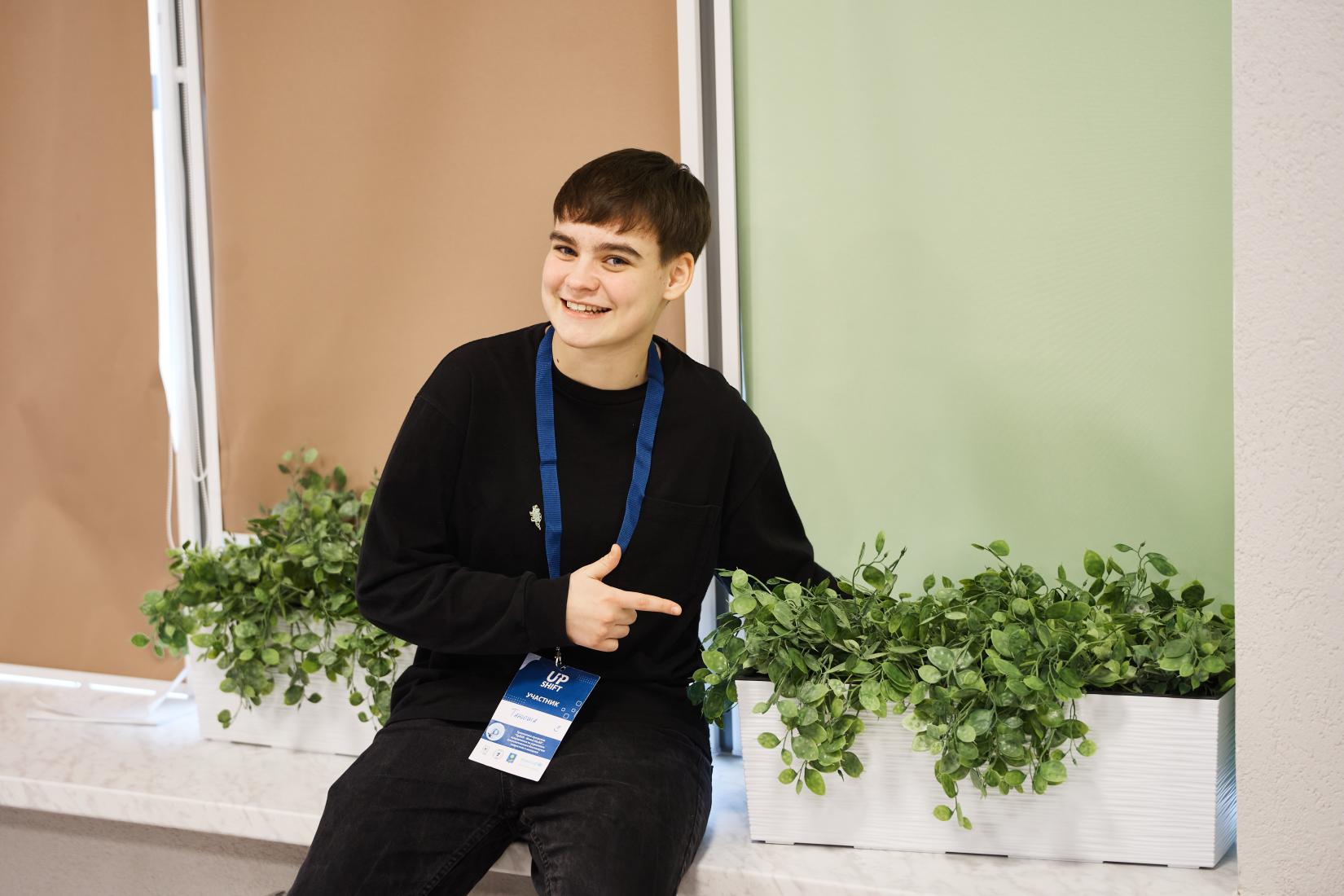
Tanya, you can say, is an enthusiast of psychology, as she has been interested in it for a long time and wants to connect her life with this science, so she began to attend the elective class one of the first. Outside of the gymnasium, she devotes a lot of her time to sports (she is engaged in women's football) and her family, where there are four children together with Tanya. I ask if she agrees with the opinion that most of those who want to connect their lives with psychology, first of all, want to understand themselves and their problems.
Tanya nods in agreement. Then I ask a direct question, “Are you one of them?” “Yes," the girl answers honestly, "For example, I have always been empathetic, and I literally perceived someone else's pain as my own, i.e. I am physically healthy and the next moment a teammate falls unsuccessfully and breaks her leg. And I immediately react, I feel this pain, I feel bad. One more thing: professional football for 7 years affects both your personality – it becomes hardened, and your appearance – there is no time for the usual bows and makeup. You start to differ from your peers and, unfortunately, often if you are not like everyone else, then you are either in conflict with others, or you just find yourself overboard, alone.” Tanya was lucky with both her family and her teammates, so the situation in the classroom did not become traumatic, although it was unpleasant. To help herself cope with the pressure, the girl began to read books on psychology, and then signed up for the elective class. Tanya considers the first step to self-help for a teenager who is anxious, confused, scared, stressed to be an honest admission to oneself that there is a problem, and the second step is the willingness to share it with parents or a psychologist. She has taken these steps and continues to work with herself, while the head of the elective class guides and helps her. The support also comes from her teammates, with whom they created the project for UPSHIFT together.
For reference.
UPSHIFT is a methodology that teaches teenagers to identify, study and understand problems in local communities, and then create effective project solutions in the form of products, digital solutions or services. It also helps to develop social innovation and entrepreneurial thinking skills, including communication skills, problem solving, critical thinking, financial literacy, and budgeting. Such a program has been implemented in Belarus since 2019, and this year it was devoted to the topic of psychological well-being.





